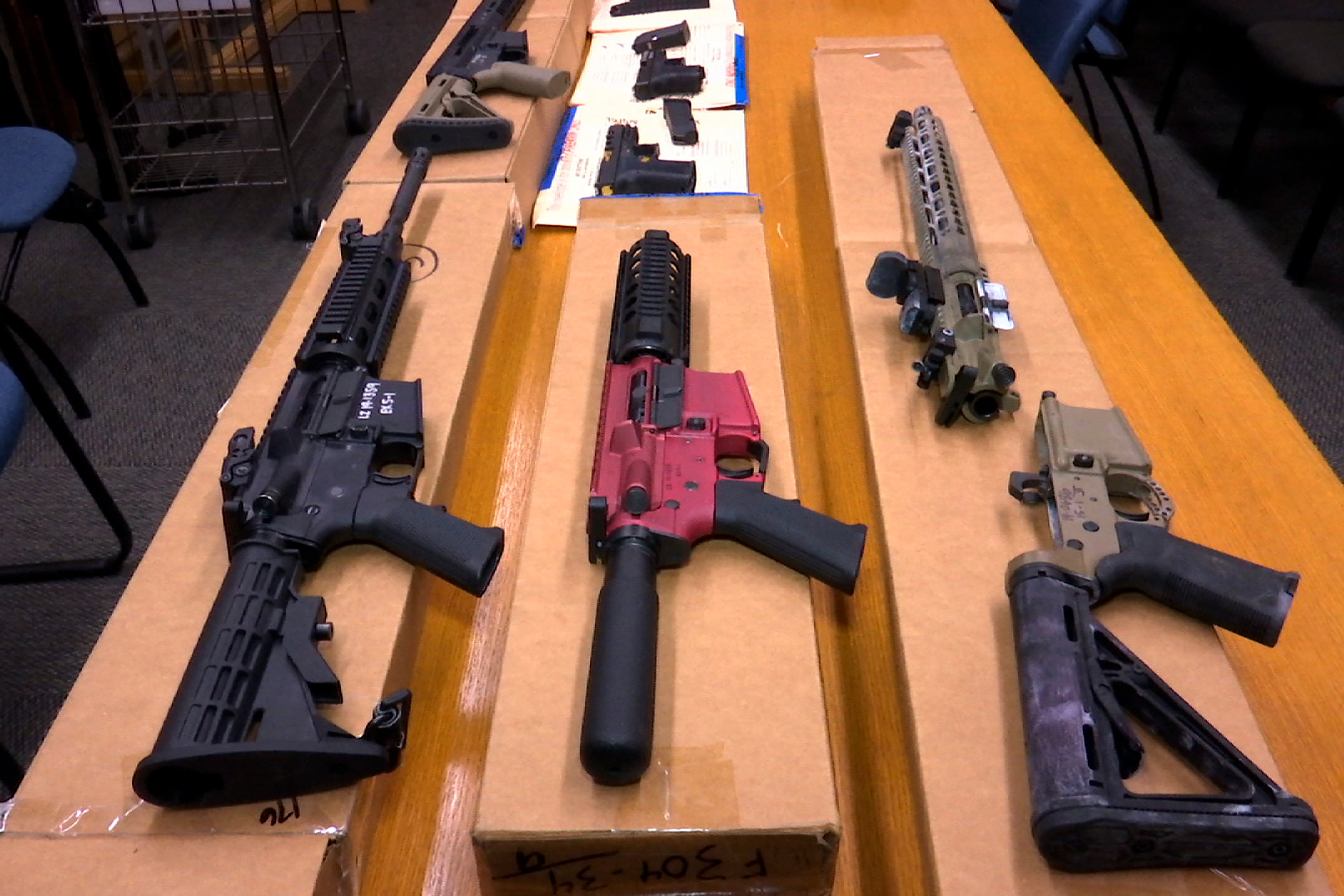Biden to nominate new ATF director, release ghost gun rule
A U.S. attorney in the Obama administration is being nominated by President Joe Biden to run the Bureau of Alcohol, Tobacco, Firearms and Explosives

Your support helps us to tell the story
From reproductive rights to climate change to Big Tech, The Independent is on the ground when the story is developing. Whether it's investigating the financials of Elon Musk's pro-Trump PAC or producing our latest documentary, 'The A Word', which shines a light on the American women fighting for reproductive rights, we know how important it is to parse out the facts from the messaging.
At such a critical moment in US history, we need reporters on the ground. Your donation allows us to keep sending journalists to speak to both sides of the story.
The Independent is trusted by Americans across the entire political spectrum. And unlike many other quality news outlets, we choose not to lock Americans out of our reporting and analysis with paywalls. We believe quality journalism should be available to everyone, paid for by those who can afford it.
Your support makes all the difference.President Joe Biden is nominating an Obama-era U.S. attorney to run the Bureau of Alcohol, Tobacco, Firearms and Explosives, as his administration unveils its formal rule to rein in ghost guns, privately made firearms without serial numbers that are increasingly cropping up at crime scenes, six people familiar with the matter told The Associated Press.
Biden is expected to make the announcement nominating Steve Dettlebach, who served as a U.S. attorney in Ohio from 2009 to 2016, at the White House on Monday, the people said. They were not authorized to discuss the nomination publicly and spoke to the AP on condition of anonymity.
The administration will also release the finalized version of its ghost gun rule, which comes as the White House and the Justice Department have been under growing pressure to crack down on gun deaths and violent crime in the U.S.
Dettlebach’s confirmation is likely to be an uphill battle for the Biden administration. Biden had to withdraw the nomination of his first ATF nominee, gun-control advocate David Chipman, after the nomination stalled for months because of opposition from Republicans and some Democrats in the Senate.
Both Republican and Democratic administrations have failed to get nominees for the ATF position through the politically fraught process since the director’s position was made confirmable in 2006. Since then, only one nominee, former U.S. Attorney B. Todd Jones, has been confirmed. Jones made it through the Senate in 2013 but only after a six-month struggle. Jones was acting director when President Barack Obama nominated him in January 2013.
The Biden administration’s plan was first reported by Politico.
For nearly a year, the ghost gun rule has been making its way through the federal regulation process. Gun safety groups and Democrats in Congress have been pushing for the Justice Department to finish the rule for months. It will probably be met with heavy resistance from gun groups and draw litigation in the coming weeks.
On Sunday, the Senate's top Democrat, Sen. Chuck Schumer of New York, implored the administration to move faster.
“It’s high time for a ghost gun exorcism before the proliferation peaks, and before more people get hurt — or worse,” Schumer said in a statement. “My message is a simple one: No more waiting on these proposed federal rules." Ghost guns are "too easy to build, too hard to trace and too dangerous to ignore.”
Justice Department statistics show that nearly 24,000 ghost guns were recovered by law enforcement at crime scenes and reported to the government from 2016 to 2020. It is hard to say how many are circulating on the streets, in part because in many cases police departments don’t contact the government about the guns because they can’t be traced.
The rule is expected to change the current definition of a firearm under federal law to include unfinished parts, like the frame of a handgun or the receiver of a long gun.
In its proposed rule released last May, the ATF said it was also seeking to require manufacturers and dealers who sell ghost gun parts to be licensed by the federal government and require federally licensed firearms dealers to add a serial number to any unserialized guns they plan to sell.
The rule would also require firearms dealers to run background checks before they sell ghost gun kits that contain parts needed to assemble a firearm.
For years, federal officials have been sounding the alarm about an increasing black market for homemade, military-style semi-automatic rifles and handguns. As well as turning up more frequently at crime scenes, ghost guns have been increasingly encountered when federal agents buy guns in undercover operations from gang members and other criminals.
Some states, like California, have enacted laws in recent years to require serial numbers to be stamped on ghost guns.
The critical component in building an untraceable gun is what is known as the lower receiver, a part typically made of metal or polymer. An unfinished receiver — sometimes referred to as an “80-percent receiver” — can be legally bought online with no serial numbers or other markings on it, no license required.
Police across the country have been reporting spikes in ghost guns being recovered by officers. The New York Police Department, for example, said officers found 131 unserialized firearms since January.
A gunman who killed his wife and four others in Northern California in 2017 had been prohibited from owning firearms, but he built his own to skirt the court order before his rampage. And in 2019, a teenager used a homemade handgun to fatally shoot two classmates and wound three others at a school in suburban Los Angeles.